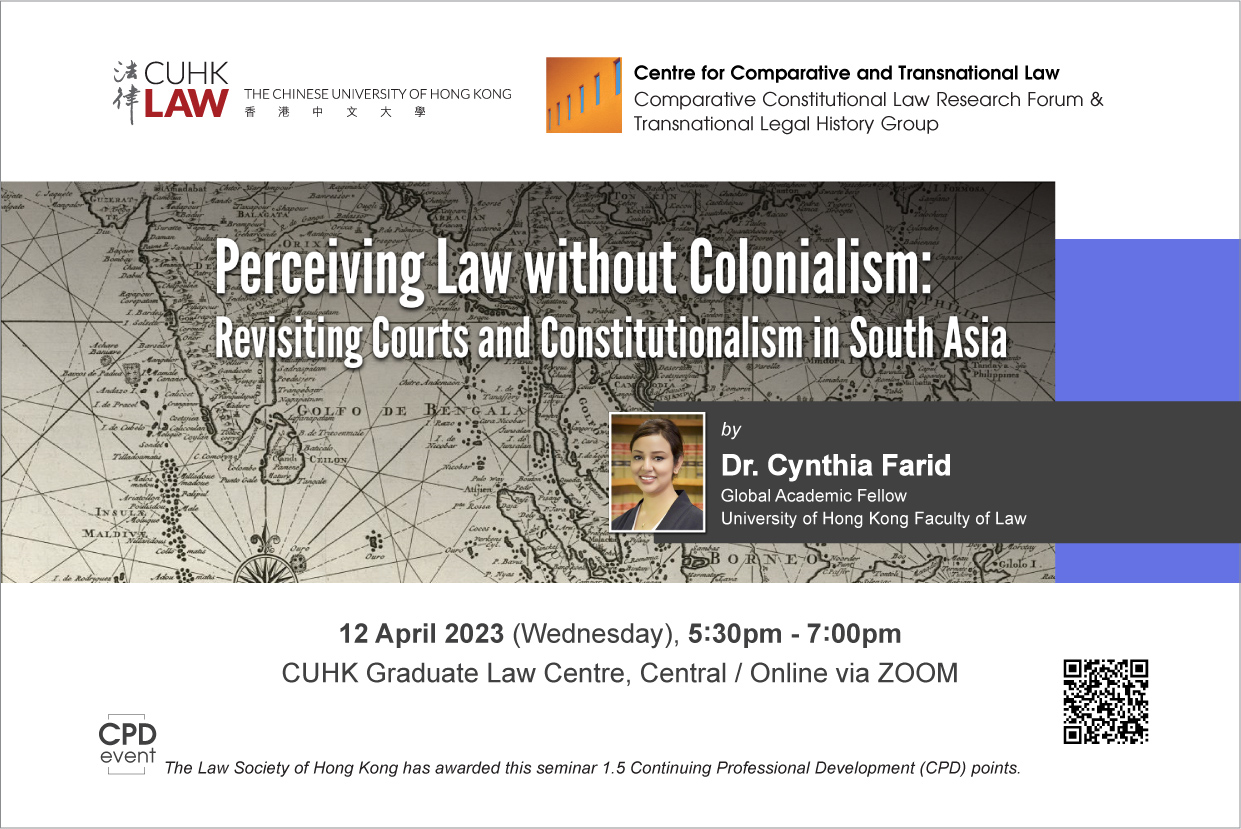Events
CUHK LAW CCTL seminar – ‘Perceiving Law without Colonialism: Revisiting Courts and Constitutionalism in South Asia’ by Dr. Cynthia Farid
12 Apr 2023
5:30 pm – 7:00 pm
CUHK Graduate Law Centre, Central/ Online (Zoom)
Dr. Cynthia Farid is a legal historian and a lawyer with longstanding experience in research, legal practice as well as a range of international development and rule of law programming with INGOs, think tanks, and legal rights organizations. Having completed her bar from the UK and Bangladesh, she graduated with advanced degrees from Cornell Law School (LL.M) and the University of Wisconsin Law School (SJD-Doctor of Juridical Science).
She is currently appointed as a Global Academic Fellow at the University of Hong Kong Faculty of Law. Prior to her appointment, Dr. Farid was practicing as an Advocate of the Supreme Court of Bangladesh, and had been working with human rights NGOs in Bangladesh on research and reporting to UN treaty bodies. Dr. Farid’s research interests include socio-legal history, constitutional and administrative law, law and development (with a focus on South Asia), and knowledge production processes in the Global South. She is also the organizer of two International Research Collaboratives of the Law and Society Association on South Asian Legal Systems and Scholars in the Global South respectively, that have brought together scholars from around the globe to work on collaborative projects.
This paper argues that the colonial government in India was shaped by changes in property law, race relations, and other institutional interests that accompanied the political and economic restructuring of the colonial state. Therefore, the development of constitutionalism was the outcome of the interplay between institutional and professional interests and larger socio-economic and political forces. Against the backdrop of empire, constitutionalism in British India was defined by a specific form of allocation of powers between the executive (which also exercised legislative powers) and the high courts. The structure that developed as a result was a strong executive government, particularly in its exercise of power in local districts with formal judicial scrutiny introduced after 1861. The relationship between the executive and the judiciary in localities generated a series of conflicts and tensions, which were exacerbated by the expansion of the bureaucracy, the legal profession, and gradual inclusion of Indians in the upper strata of governance. Taken together, these factors led to the development of a hybrid model of separation of powers in the Indian subcontinent, which seems to have stood the test of time in postcolonial countries of South Asia despite political elites having invested considerable resources on constitutional reform.
Language: English
The Law Society of Hong Kong has awarded this seminar 1.5 Continuing Professional Development (CPD) points.


